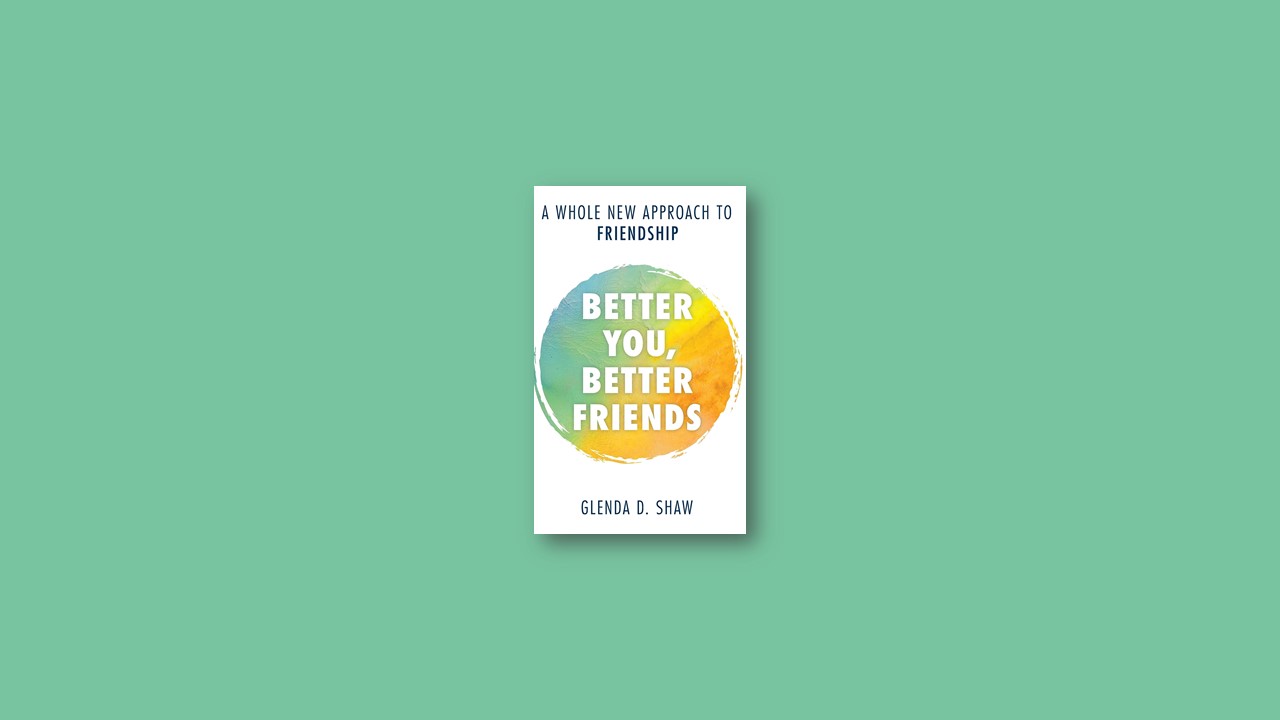When Is a Friend a Friend?
Here are four levels of friendship:
Essential friends are close buddies and confidantes, who share many connectors and keep my confidences; we really show up for each other, and weather stormy times.
Collaborators have a lot of attraction initially, because they often fulfill a current purpose in our lives. So, possibly, they’re more temporary by nature. Even so, they offer something significant during a certain time in life and are often fun to hang out with.
Associates are single-purpose friends who share a common interest: a hobby, sports team, book club. We’re mutually engaged in a shared activity, and we find pleasure in that commonality. Yet there is less stress in these connections because we have fewer emotional attachments.
Mentors/mentees come in two forms. Mentors are the guides in our lives—usually more senior or skilled, helping us through one transition or another with clear boundaries and a lot of respect. Mentees are people, usually younger than we are, who are at the beginning of their careers or life journey. I have found that offering insights and guidance for these young friends often refreshes my own thinking; it’s a gift from giving.
Each level of friendship is important. Each is about figuring out what you can offer each other. At certain points in your life, this means offering emotional support; at other times it’s sharing common interests or being helpful to one another in your work. Over time a few people will evolve into something more essential to your long-term well-being.
At each stage of friendship, however, we share love and acceptance. Just how much depends on our level of intimacy. As Oren Jay Sofer writes in his book on nonviolent communication, “Intimacy is born in conflict. Differences can bring us together and help us know one another. Friction can be creative and synergetic, leading to new ideas and perspectives. These kinds of conversations are characterized by very different intentions than our unconscious communication behavior.”
From Your Friend’s Perspective
Every day we communicate with friends, and during these exchanges, we evaluate our friends with a different yardstick than the one we use on ourselves. Most of us don’t realize this. We don’t, for instance, see ourselves as being biased, but we often have no trouble seeing others in that light. Here’s a little example. If your boss hires her friend, you’d probably think she was acting from bias, right? But if you hire your friend, it’s not because you’re biased; it’s because he’s a terrific worker, he’s so dependable, he’s highly skilled.
The difference between the way we evaluate ourselves and others is a blind spot, and it causes a lot of miscommunication and conflict in our friendships.
Understanding such biases is an important factor in creating harmonious friendships. Becoming aware of these unconscious influences makes a huge difference in the ease of our friendships. Knowing the difference between how we assess ourselves and others helps us navigate a wide variety of issues that can arise in friendship. It’s a friend-making tool at any level.
Anything You Can Do, I Can Do Better!
Just as the best course of action to remedy a toothache is to remove the decay (rather than developing coping techniques to deal with the pain), the best way to fix envy is to solve the adaptive problem that it is signaling needs to be solved.
There are many influences—some of them inside us—making it difficult to accomplish this. But as we look more closely at the influences in our own lives, we can find ways to avoid enacting the fallout from envy with our friends. Here are five techniques
- Redress imbalances
- Work to improve
- Talk about it
- Get some perspective
- Focus on your goals
Money: Let’s Talk about It!
Being fair with friends in money matters starts by being fair with yourself.
And really, whether or not you’re on a budget, what’s important is hanging out with your friends, and we can all find ways to share fun, novel experiences together rather than getting hung up on the cost. In the book, Happy Money: The Science of Smarter Spending, two academics—Elizabeth Dunn, a psychology professor from the University of British Columbia, and Michael Norton, a Harvard marketing professor—cite studies that show how we’re more likely to find happiness in a dinner out with friends, road trips, visiting a museum—than buying a new purse, iPad, or computer.
Apparently, we’d prefer to have more time on our hands than money in our pockets—the book calls this time affluence. It’s pretty unlikely you’ll have a digital photo album full of the purses you’ve bought over the last twenty years—even if they’re Louis Vuitton’s! But you are likely to keep pictures of that crazy road trip you took with friends, birthdays in backyards, hanging out anywhere or at any time in nature, dancing at any and all holiday events, and a lot of goofy smiles (especially if they’re your friends’ goofy smiles)—because these are the snapshots from our lives, records of our beautiful experiences together, our memories.
Transitions: When Big Life Changes Blow In
During our own times of stress, we’re juggling so much that it’s easy to lose sight of the big picture—the larger perspective that includes our friendships.
And when one of our friends is going through a major transition, we may need to give them more tender loving care.
let’s start with what we can do to keep friendships when we’re the ones in transition. For instance, it’s helpful to consider that when you’re stressed, you may be the one who isn’t returning phone calls. You may be so worried, so busy with your survival questions—Where am I going to live? What am I going to do now that my spouse has left me? How can I find a new job?— that you don’t even think about how you’re treating the people around you.
The short of it is that when we’re under stress, we have less time and energy to give to others—yet we want our friends to show up for us!
Your friends can do this, however, only if you reach out to them! And this reaching out is eminently worthwhile because these friends are not experiencing turmoil over your situation in the way you are and so they are more likely to have a clearer perspective. There is one other advantage to reaching out to friends when you’re troubled—if you do, they’ll be more likely to reach out to you when they’re going through a tough time.
Boundaries: Set Them, Respect Them
Setting boundaries is about knowing what you want in a friendship so when a friend crosses a line into territory that doesn’t work for you, instead of dwelling on their behavior, you address the issue.
To do this, of course, you have to be clear—or become clear—about what your boundaries are in the first place. Yes, it’s possible to lose friends when setting boundaries. Yet I believe that for every level of friendship, whether new or old, it’s perfectly acceptable—in fact, it’s important—to set down boundaries if you feel a friend repeatedly crosses a line that upsets you by:
- being pushy or controlling,
- being thoughtless or inappropriate,
- being needy and uptight,
- making debilitating choices, or
- intruding on personal areas that don’t concern them.
Speaking up about these issues is one way we let someone know what our rhythm is; it’s how we share our likes and dislikes, our life views; it’s how we demonstrate our character.
Honesty: Telling Difficult Truths
Opinions are discussions about taste, ideas, or personal philosophy and don’t necessarily rely on hard facts or objectivity. If you and a friend agree on an idea, taste, and so on, the two of you feel validated, connected, and have relationship harmony. If, however, your opinion differs from a friend’s, you get to find out how the two of you deal with these differences. Doing this gracefully is more supportive of a friendship than agreeing on everything.
- Is your opinion in response to a question?
- Does this person truly want my opinion?
- Would my opinion improve the situation?
- How can I deliver my opinion so that this person is likely to be able to take it in?
Strengthening the Bonds of Friendship
Just as important as seeing people is listening to them. Really listening to them. As an exercise in strengthening bonds of friendship is known as active listening.
If there’s one sentiment you’d think would be innate to our behavior with friends, it’s showing our interest through listening and asking questions. But, apparently, we don’t seem to be able to find the time to fully engage with listening—and then we don’t have enough information to ask questions.
Follow-up questions indicate you’re listening to the other person, and that demonstrates responsiveness, which is a very likable trait. And, to no one’s surprise, the fewer questions you ask, the less you’re liked.
Listening is important, and follow-up questions matter. But, of course, friendship is about more than just our words. It’s also about what we do.
Taking action has many forms. Most of us aren’t particularly DIY or don’t have computers to loan our friends. Other ways of stepping forward can be such simple acts as showing up when you say you will, putting your friend’s preferences before your own on movie night, waiting to make sure your friend is safely in the door before driving off, letting go of the work that you did for their benefit.


